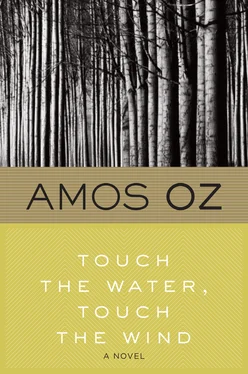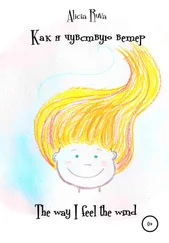Moreover: It had become known from the newspapers that the new discovery had found many challengers. Doubts had been raised in several famous universities. A rash of second thoughts. Here and there also a letter or note in a learned journal. An Italian-Jewish professor who directed several research institutes on the west coast of the United States accused Pomeranz of fraud, of mathematical acrobatics; he asserted publicly that no solution had been found, that the equation was merely a desperately clever piece of hocus-pocus in the no man's land between the two main schools of logic.
On the other hand, an obstinate little teacher from Rotterdam emerged with the vague claim that he himself had already resolved the same mathematical paradox in 1939 and it was only due to his bad luck that the discovery had not been made public. In his address to the Soviet Academy of Sciences the Deputy Commissar for Science and Energy, Osip Grigorich Kumin, attacked the barren sophistry of certain futile theories being propounded in the West and their ramifications in Tel-Aviv. The speaker attached to all this sophistry the epithet "talmudistic."
Among the members of the kibbutz there were some who collected and circulated any such statement which appeared in the newspapers, even if only in the curiosity columns. Certain members derived pleasure from these challenges. They whispered and sniggered in private, reveled in rumors, and secretly awaited calamity. The collapse of the theorem. A minor, but colorful and heart-warming, scandal.
Most of the kibbutz members maintained an impartial attitude. How could simple folk be qualified to judge. It might be, or it might not. Wait and see. What are we expected to do. Certainly not to take any difficult decisions. There's no hurry: we'll cross our bridges when we come to them. There may not be any bridges to cross.
Meanwhile the backward pupils continued to come, dense but determined. To sit. To sweat. To belch. To strain their minds to the utmost. If they had a flash of illumination, their eyes lit up and they looked at him with inspiration. If there was no illumination they went home quietly, only to come back and try again in another day or two. Yotam, Ernst's crazy son, attached himself to Pomeranz and talked to him compulsively. But then, who had not fallen victim to the body's insatiable appetite for talking. He even used to speak to the doves, and lectured the oleander bushes, not to mention the girls, who were all forced to run away and hide when they saw him approaching.
The mothers of these girls would watch Elisha Pomeranz from where they sat on benches or on deck chairs in the cool of the evening, and say to one another:
"Fame and publicity are quick to come and quick to go."
"We've seen all sorts of shooting stars in the past — and who remembers them now."
"We had a lecture once about a piece by Borokhov which was very much to the point. It was called 'Castles in the Air.' Or maybe it was by Tabenkin."
"It's like the fashions. Somebody turns up, creates a stir, and then disappears. That's the way it is."
And they said:
"The whole thing's unreasonable. It's not natural."
And they also said:
"Maybe die ganze zach is a drey, a speculatsie, a gigantishe bloff. "
The subject is the terrifying ruthlessness and desperate cunning of agents of various secret services. The story unfolds against a background of narrow alleys, deserted railway stations, and hotel lobbies in such towns as Milan, Turin, Locarno. The central character: an important figure in the Russian intelligence service, a woman, beautiful, extravagant, mysterious, who has decided to desert into the arms of the Israeli secret service, at great personal risk, because in the depths of her heart an ancient love has suddenly begun to stir, and for other reasons that are only hinted at. The night of terror is filmed in gray-black tones in sharp, nervous contrasts, while the memories of the central character, which are interwoven with the fast-moving action, appear in soft grays and reds, slightly hazy, like an impressionist painting. The dialogues are few and pointed. Most of the scenes are shot against a background noise of dimly throbbing engines. There is no music. Few effects. The atmosphere is one of silent, vicious violence, like a fight with daggers underwater. Milan. Night. Neon. A telephone booth. A Mongolian character, an expression of cruel cunning and ruthless stupidity, close-up, flat-headed Andreitch waiting in the darkness between two huge trucks parked in a side street. Cut. Hotel lobby. Waiters. A sheik wearing desert robes and gold rings. An old man in a wheelchair. Monkeys and parrots. Ice-cold beauties. A shortsighted man pushes between two gentlemen. A figure in a bridal veil. And in a flash two fat men firing after a speeding car, missing, firing again. They are shot from behind, they are not greatly disturbed, they operate some kind of flashing ray device, they are hit again, again they take no notice, they complete an electrical circuit, then they collapse in each other's arms like ballet dancers and suddenly they are both nothing but rag dolls filled with synthetic stuffing. Then a change of color. A change of rhythm. A background. A distant view. And once more gray-black, night, sharp cuts. A freight plunges into a ravine. A light aircraft lands without lights and in an instant takes off again and proceeds on its way. It is night, someone is a hair's breadth faster than the rest, someone causes a clever diversion, someone is caught in a trap and gnashes his teeth, a Bashing movement in the gloom, a shadow changes shape, there is a betrayal, a coup, fury, then the night pales and stillness settles over all. The production benefited from the support of the Cabinet minister who came from the same town as Stefa and Pomeranz and had once belonged to the Goethe Society. The man who looked like an adulterous rabbi returned to his shabby bachelor apartment on the outskirts of Old Bat-Yam and slept alone there for two nights and a day, then extended his short triumphal holiday by a day and advanced two pages in his private researches into the unexplored origins of the bitter rift between the rival talmudists Eibeschutz and Emden in the eighteenth century, and here too he made discoveries which no previous research had brought to light. As for flat-skulled Mikhail Andreitch, he was not slow to grasp the consequences of his failure and sought political asylum in America. After rendering some assistance and receiving his reward, he earned his living for a time by playing the part of old-fashioned Russian landlords in films, also specializing in unscrupulous villains and aristocratic émigrés. Eventually he landed in Argentina, where, if there is anything in the rumors, he made a fortune in the canned-beef trade.
Meanwhile, Galilee woke up to the billowing perfumes of spring. Each morning everything was bathed in moist sunlight. Brooding hills suddenly burst into ecstasy, blazed with red anemones, whirled heedlessly, dizzy in the ever-changing light. And close up: Some butterflies. The drone of a bee. The low buzz of flying ants. Dewdrops at dawn. New birds with new songs. And the buds appeared.
Elisha Pomeranz too appeared each morning on his way past the kibbutz office, a dwarfish figure in working clothes, his hat uncompromisingly hiding the upper half of his head, a shepherd's stick in his hand. Through the office window Ernst, unseen, suppresses a smile and raises an eyebrow: Really? And at once he returns to his work at the duplicating machine: Really.
Each morning, three or four days a week, Pomeranz tended the sheep. Each evening he sat in his room. If he had a visitor he offered him coffee and cookies. Ernst's two middle-aged lady friends, Vera and Sara, made themselves responsible for seeing to it that he was never short of cookies. Sometimes there were other volunteers. He carried on a light, intelligent conversation with his guest: music, the hopes for progress and its dangers, things in general, things here and now. Occasionally the guest would start talking about emotional stress; he might give an example from his own immediate experience. Elisha would listen attentively, would sometimes answer gently, and even hint vaguely at a tranquillity, at a possibility of peace even when it seemed there was no peace to be had. Then he would stop talking and give his undivided attention to whatever was said, even if it was very dull.
Читать дальше

![Хироми Каваками - Strange Weather in Tokyo [= The Briefcase]](/books/29150/hiromi-kavakami-strange-weather-in-tokyo-the-br-thumb.webp)










